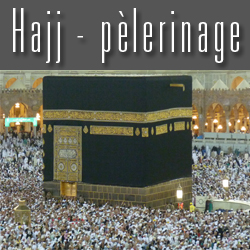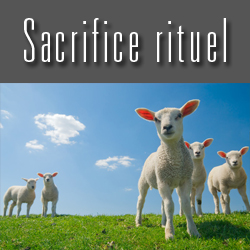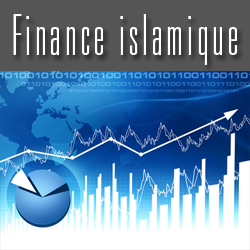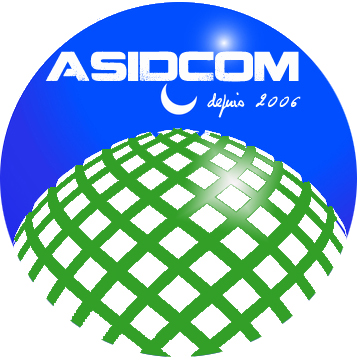Interview with Darhim Hashim : a single global standard is neither feasable nor necessary

(
![]() ,
,
![]() ,
,
![]() عربي)
عربي)
To inform consumers about the current challenges of Halal certification and the steps towards the standardization of the market, ASIDCOM conducted an interview with Darhim Hashim, theChief Executive Officer of IHIA. The latter has led his organization since May 2006 in order to create a global standard for Halal, in collaboration with the Islamic Chamber of Commerce and Industry (ICCI). ICCI is an institution affiliated with the Organization of the Islamic Conference ("OIC"), which represents the private sector of the 57 OIC member countries.,.
ASIDCOM : Please, talk about yourself and your experience in the halal market ?
Darhim Hashim : I am actually a Chartered Accountant by qualification but I first got involved in the agriculture sector when I was working with a conglomerate which had a plantation & agriculture division. One of my tasks was to integrate livestock into the palm oil plantation. I found a passion for this sector and decided to specialise in cattle and beef production. This gave me direct exposure in the whole supply chain for Halal meat from the farm, feed, handling, transportation, restraint (and stunning), slaughter, processing, storage and retail. My on the field experience together with my corporate background earned me a senior position with the newly set-up Halal Industry Development Corporation (HDC), an initiative under the Prime Minister’s office to develop Malaysia into a Global Halal Hub. I was responsible for Industry Development which entailed enhancing the capabilities of Small & Medium sized enterprises (SMEs) involved in the Halal products sector, assisting established companies to gain access to export markets and facilitating inflows of foreign direct investment into the sector. I left HDC to set up International Halal Integrity Alliance (IHI Alliance), and successfully obtained a mandate for it at the OIC Islamic Summit in Dakar, Senegal to develop a global Halal programme together with our partner, the Islamic Chamber of Commerce & Industry (ICCI).
Through IHI Alliance, I have been able to be involved first hand at trying to resolve the issues of fragmentation of standards, lack of oversight and regulatory framework, lack of mutual recognition, among others. In addition, I have also been actively involved in promoting the concept of Halal especially to non-Muslim audiences in various platforms including the Consumer Goods Forum, Meat Industry Association New Zealand, World Bank and European Food Law Association, to name a few. I have also been interviewed to speak on Halal industry issues in Forbes, Time and Economist magazines and The New York Times.
ASIDCOM : Tell us about your organization ICCI-IHIA ?
Darhim Hashim : The International Halal Integrity Alliance (“IHI Alliance”) is an international not-for-profit organisation created to uphold the integrity of the halal market concept in global trade through recognition, collaboration and membership. IHI Alliance was formed following a resolution passed by international delegates at the World Halal Forum in May 2006. Over 30 different countries were represented at the World Halal Forum 2006 consisting of a cross-section of stakeholders across the whole industry supply chain. The outcome of the Forum that was universally supported by the delegates was the need for a Global Halal Standard and the task to spearhead this effort was mandated to IHI Alliance.
IHI Alliance is responding to the resounding call made by the industry by developing a global Halal certification and accreditation system that will be recognised throughout the world. To this effect, IHI Alliance has made a strategic collaboration with the Islamic Chamber of Commerce and Industry (“ICCI”). ICCI is an institution affiliated to the Organisation of Islamic Conference (“OIC”), which represents the private sector of the 57 OIC member countries. The ICCI President His Excellency Sheikh Saleh Abdullah Kamel is concurrently the Chairman of IHI Alliance.
ASIDCOM : According to your experience, Can you describe the halal products certification world, its weaknesses and strengths ?
Darhim Hashim : Halal certification remains largely an unregulated industry. Except for certain countries of ASEAN (Association of South East Asian Nations) namely Malaysia, Singapore, Indonesia, Brunei and Thailand, there is no regulatory infrastructure in most countries which are major producers and exporters of Halal products. So far, only New Zealand has taken the bold step of regulating halal certification under their newly announced Halal Notice which comes under the federal jurisdiction of the Food Safety Authority. In the absence of this regulatory oversight, halal certification bodies (HCBs) are left to operate at their own discretion, more often than not exercising little or no scruples in their undertaking of this massive responsibility. This is unfortunate as there are also many genuine HCBs who perform a trustworthy role but are undermined by the misdeeds of those that do a disservice to the industry as well as the Ummah. Governments of non-Muslim majority countries who are serious about being major players in the global halal industry can no longer dismiss Halal as merely a religious issue hence adopt a secular stance in ignoring it. Halal certification is now far more than just a religious issue as it touches on trade, business activities, consumer rights, international trade and even reflects on the country’s integrity reputation.
Halal certification though has opened up a new wealth of experience for Muslim consumers worldwide. The advent of globalisation in the trade of food products, immigration of Muslims into non-Muslim majority countries and the rise in numbers of Muslim travellers has spurred the demand for “Halal-friendly” products and services. Halal certification has enabled these Muslims to be able to make an informed choice when consuming products which otherwise may have been doubtful, or mushbooh. Multi-national companies such as Nestle, Carrefour and Unilever have recognised the value of the Muslim market and have obtained Halal certification for many of their products. Even fast-food chains such as MacDonald’s, KFC and Quick have made Halal certain outlets in non-Muslim countries with a significant Muslim minority population opening up a whole new experience for second and third generation Muslims. Certification has enabled Halal to go mainstream which enables Muslims to better integrate with non-Muslims.
Independent third party certification provides a good check and balance on companies producing Halal products. What is needed now is a system of providing a check and balance on the certifiers themselves.
ASIDCOM : What are the key criteria that enable a certification Body to be accredited by your organization ?
Darhim Hashim : I attach our guidelines for accreditation. As you will see it is quite detailed.
ASIDCOM : Tell us about the Malaysian experience to organize its Halal market ?
Darhim Hashim : Malaysia has had a long history of regulating the Halal industry. Back in 1963, monitoring of Halal products was conducted by State authorities but it was only in 1971 that an official letter to confirm a product’s halal status was first issued by the State Islamic Authority. In 1975, a law to protect the use of the word “Halal” was incorporated into the Trade Description Act 1972. This meant that consumers were protected from fraudulent or incorrect labelling. During the rapid industrialisation period of the 1980’s a significant demographic transformation occurred. With increased distribution of wealth, there were more urbanised, middle class Malays (hence Muslims) with higher spending power. This compelled restaurant operators, hotels and food manufacturers to ensure their offerings were Halal in order to serve this growing market. From this demand grew the need for Halal certification which was introduced by JAKIM (Dept of Religious Development of Malaysia) in 1994. Until today, Halal certification is voluntary in Malaysia hence it is driven purely by consumer demand. The growth of the Halal industry grew beyond the domestic market. Propelling Halal certified products to the global stage of international trade meant the need to conform to international standards. This lead to the first documented Halal Standard (MS1500:2000) which was developed in line with international standardisation best practices. Since then, there has been 2 revisions to the MS15000 and subsequently new standards have been published to address specific sectors in the industry such as Halal cosmetics, supply chain management and management systems. More recently there has been a further amendment to the Trade Description Act to increase the penalties for fraud in Halal labeling as well as to authorise officers from JAKIM to conduct enforcement activities.
ASIDCOM : What are the informations provided to Malaysian consumers about the Halal product they buy ?
Darhim Hashim : At the retail level, a Malayisa Halal logo is displayed on the external product packaging. This logo should also be accompanied by a reference number which is allocated to the company making the product. Therefore it is possible to cross check with JAKIM to authenticate the Halal logo issued to the company. Other than that, there is the usual ingredients label and when required a nutrition label as well.
ASIDCOM : Despite all, the Halal market, throughout the world, is a very opaque market to consumers and small businesses. Why ?
Darhim Hashim : This is mainly because Halal certification and monitoring is an unregulated industry. The organisations that are responsible for auditing, issuing halal certification and monitoring are typically not answerable to an enforcing authority. Most governments in non-Muslim majority countries are secular so when they treat Halal as a religious issue, it is left alone to its own devices. The exception in this case is New Zealand which has introduced stringent laws on Halal certification of products for export. This law has forced the producers and certifiers to be transparent to all stakeholders. In the absence of any law, some Halal certification bodies have taken it upon themselves to be transparent in disclosing their standards and procedures. They have been able to gain confidence in their customers this way.
ASIDCOM : In your opinion who are the different responsible for this opacity ?
Darhim Hashim : If I understand the question correctly, why are those involved being opaque ? This digs into the psychology of those responsible at their organisations so I may not be in a position to answer for them. I would like to believe that this lack of transparency is because they are unaware of such requirements. Unlike firms like Bureau Veritas or SGS, Halal CBs do not have to be accredited against ISO 17020 or Guide 65 etc therefore there is no requirement as such for them to be transparent. We at IHI Alliance have introduced an accreditation programme for Halal CBs to address this gap specifically.
ASIDCOM : What is the responsibility of Muslim consumers ? and how can they contribute to secure their right to be properly informed ?
Darhim Hashim : The consumer activist groups are a powerful voice and can be leveraged on for good effect. They are responsible for themselves as consumers. As a collective voice, they are strong and have an added responsibility of exercising that power in a fair and just manner. We have situations in this region where consumer groups act irresponsibly by intimidating businesses and causing hurt and financial losses through spreading of lies and false accusations. Consumer groups must fight for the truth and only act when hard facts have been established. There are existing legal frameworks in which Muslim consumers’ rights can be protected such as truth in labelling laws. Consumer groups must be willing to invest in good legal counsel who would be know how to seek remedies accordingly. A representative from the Muslim consumer group should be active in any kind of oversight body like an accreditation body that would oversee the activities of the Halal CBs.
ASIDCOM : What are the benefits of standardization and a national accreditation system ? Are they required to organize the Halal market ?
Darhim Hashim : Having a documented standard in a format understood by stakeholders is a vital first step towards transparency. CBs need to make available the standard they use when certifying products so that the public knows what their logo stands for. Trying to have a common single standard would be ideal but not a necessary step to organise the Halal market. Different standards can co-exist as long as there is a mechanism to cross-recognise each other. For example, Malaysia and Indonesia can have different standards but in a reciprocal arrangement they could recognise the Halal status of each other’s products. Similarly, the importing authority of say the UAE could recognise (in addition to the GSO standard) the Malaysian and Indonesian standard for products imported into the GCC.
National accreditation would further reinforce the integrity of halal certification by providing some oversight into the activities of the CBs. Accreditation gives more confidence for consumers on the credibility of the CBs. A product certified by an accredited Halal CB would mean that the standards used are transparent and that the CB has adhered to a strict set of criteria which sets out their level of competency and professionalism.
ASIDCOM : Some certifiers in France believe that the creation of a Halal standard will end the roles of certifiers. Do you think this is the case ?
Darhim Hashim : The Halal standard will in fact further enhance the role of certifiers. A standard will provide a base reference that the certifiers and industry can use. Once a standard is available for industry to implement, they will need an independent third party to audit and certify accordingly hence more work for the certifiers. I do not believe that is necessary nor practical to have one definitive Halal standard at the national or even EU level. The Muslims in France and the rest of Europe are a diverse community and all beliefs and interpretations need to be taken into account. What is needed is perhaps a legal definition of halal in order to protect Muslim consumers against fraudulent labeling. This would define a minimum level as such or a general understanding of what is commonly accepted as Halal. Standards then can be developed on a private basis in consultation with the Fiqh scholars.
ASIDCOM : Want to add one last word ?
Darhim Hashim : After having been so involved in attempting to standardise Halal for the world, I have come to the conclusion that a single global standard is neither feasible nor necessary. We must accept that we are a diverse Ummah – after all, we were designed that way ! We should truly heed Allah swt’s word when it was revealed “O mankind, indeed We have created you from male and female and made you peoples and tribes that you may know one another….”(49:13). Instead of allowing our differences of opinion divide us, we need to accept these differences and devise a system where Muslim and even non-Muslim consumers are empowered to make an informed choice when consuming Halal products. This can be achieved by having standards made transparent and accreditation of Halal CBs. We can accommodate the differences through clear labelling that enables consumers to know the product they are buying. I believe that the power of the consumer will eventually dictate the consolidation of the many Halal standards and insyAllah towards harmonisation.
Voir en ligne : Web site of IHI Alliance









